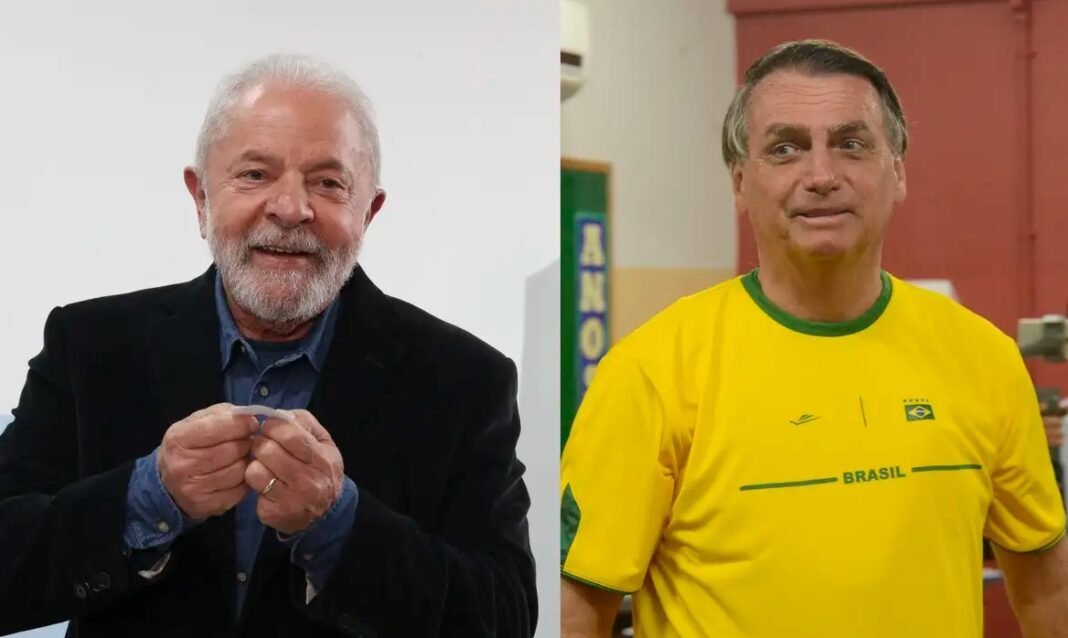Brazil’s political scene has been marked by a series of significant developments. President Lula’s approval ratings have slightly improved, although disapproval remains higher. The government is working to strengthen ties with evangelical voters, a group where disapproval is growing. In Rio de Janeiro, polls show Mayor Eduardo Paes leading the race for governor, leaving PL candidates far behind. Former president Jair Bolsonaro led a new demonstration in São Paulo calling for amnesty for those convicted of the 8 January attacks. In Brasília, the government presses Centrão parties to declare support in exchange for maintaining ministerial positions. Senator Davi Alcolumbre is pushing for control over key federal agencies. Meanwhile, congressional leaders are negotiating to reduce opposition obstruction in return for the release of parliamentary funds.
This Content Is Only For Subscribers
To unlock this content, subscribe to INTERLIRA Reports.
Improvement in Popularity
President Lula (PT) has managed to halt the downward trend in his popularity, although his disapproval rating still surpasses his approval, according to a new Datafolha poll released on Friday (04/04). The result comes as the government attempts to leverage economic policies and a nationalist discourse to reduce public dissatisfaction. After reaching the lowest approval level of all three of his presidential terms in February, Lula saw a slight recovery in April: the percentage of those who rate his administration as “excellent” or “good” rose from 24% to 29%. Despite the improvement, approval remains well below the 38% who consider the government “poor” or “terrible” a slight drop from 41% in February. Meanwhile, 32% still consider the administration “average,” the same figure as in the previous survey.
Relationship with Evangelicals
Facing a sharp rise in disapproval among evangelical voters, President Lula has intensified efforts to reconnect with this segment by aligning government programs with family-oriented values. The move comes amid growing pressure from evangelical leaders, who are urging the administration to step up outreach by 2025. They warn that if no significant actions are taken now, any attempt to engage in 2026 may be perceived as mere electoral opportunism. A recent Genial/Quaest survey highlights the challenge: disapproval among evangelicals rose from 58% in January to 67% in March 2025, while approval fell from 37% to 29% over the same period.
Scenario in Rio de Janeiro
The 2026 gubernatorial race in Rio de Janeiro has presented discouraging prospects for the PL. According to polling conducted by Paraná Pesquisas — a firm that often serves the interests of Jair Bolsonaro’s party — current Rio de Janeiro Mayor Eduardo Paes (PSD) leads by a wide margin. In both tested scenarios, Paes secured nearly half of the intended votes, while his potential opponents struggled to surpass 10%.
New Demonstration by Bolsonaro
On Sunday (06/04), former president Jair Bolsonaro (PL), along with governors, politicians, and right-wing allies, led a new demonstration on Avenida Paulista in São Paulo. The protest aimed to increase pressure on the National Congress to vote on an amnesty bill for individuals convicted in connection with the January 8 attacks. Bolsonaro spoke alongside relatives of one of the women convicted by the Supreme Federal Court for anti-democratic acts and called on lawmakers to approve the amnesty proposal put forward by the PL bench. According to calculations by the “Monitor do Debate Político” group at USP, the event drew an estimated 44,900 participants.
Government Considers Ultimatum to Centrão
Growing uncertainty surrounding Centrão parties — which currently hold key government positions — has prompted the Planalto to consider issuing an ultimatum: either these parties publicly support Lula’s 2026 re-election bid or risk losing influence in the next cabinet reshuffle. The move reflects frustration within the administration over the ambiguous voting behavior of allied parties that benefit from ministries and federal funding but have not aligned themselves with Lula’s political agenda. Without firm commitment, the government fears its congressional base will remain fragile and prone to manipulation.
Alcolumbre Presses for Positions
Senator Davi Alcolumbre (União), a key power broker in the Senate, has been pushing for greater control over appointments in regulatory and state-owned entities, including the National Land Transportation Agency (ANTT) and the Amapá Docks Company. His demands have led to friction with Communications Minister Juscelino Filho (União-MA), raising concerns within the government. While Alcolumbre’s support is crucial for maintaining a stable base in the Senate, the escalating dispute underscores the complex internal dynamics of Lula’s coalition and the ongoing power struggles over federal appointments.
Congressman Motta Asks for a Truce with the PL
In behind-the-scenes discussions at Congress,government leader in the Chamber of Deputies, José Guimarães, was heard conveying a message from House Speaker Arthur Lira to PL leader Altineu Côrtes. Lira is reportedly seeking a reduction in obstruction tactics used by Bolsonaro-aligned lawmakers during key votes, in exchange for the release of parliamentary budget amendments. The conversation highlights how political negotiations continue to hinge on the strategic use of public funds and how the government must navigate a delicate balancing act to ensure legislative progress.
Analysis:
President Lula keeps attempting to stabilize his administration amid slipping popularity and growing discontent among key voter groups. While recent polling shows a slight rebound in approval, disapproval remains dominant, especially among evangelicals, whose support has eroded significantly. The government’s efforts to reconnect with this bloc suggest a strategic move to contain political damage before 2026.
In Congress, the administration faces challenges in keeping its base united. Internal power disputes, such as those involving Senator Davi Alcolumbre, and the ambiguous stance of Centrão parties—despite their control over ministries—illustrate the difficulties in maintaining a functional coalition. The Planalto’s push for loyalty in exchange for continued influence reveals the government’s concern over legislative fragility. Meanwhile, the opposition continues to assert itself through public mobilization, as seen in Bolsonaro’s latest demonstration.
Sources: O Globo [1], [2], [3], [4], [5], [6], [7]; G1 [1], [2].




